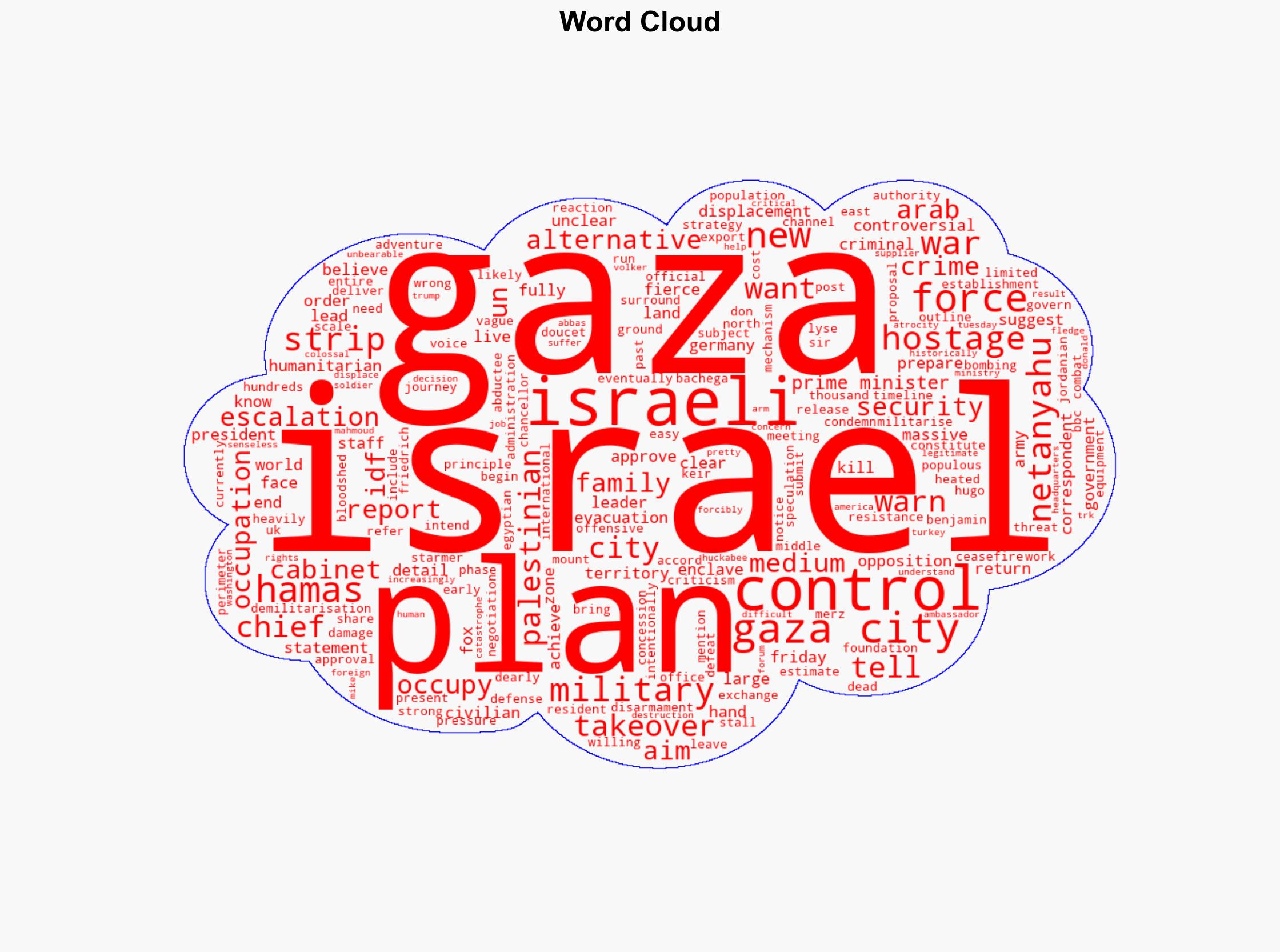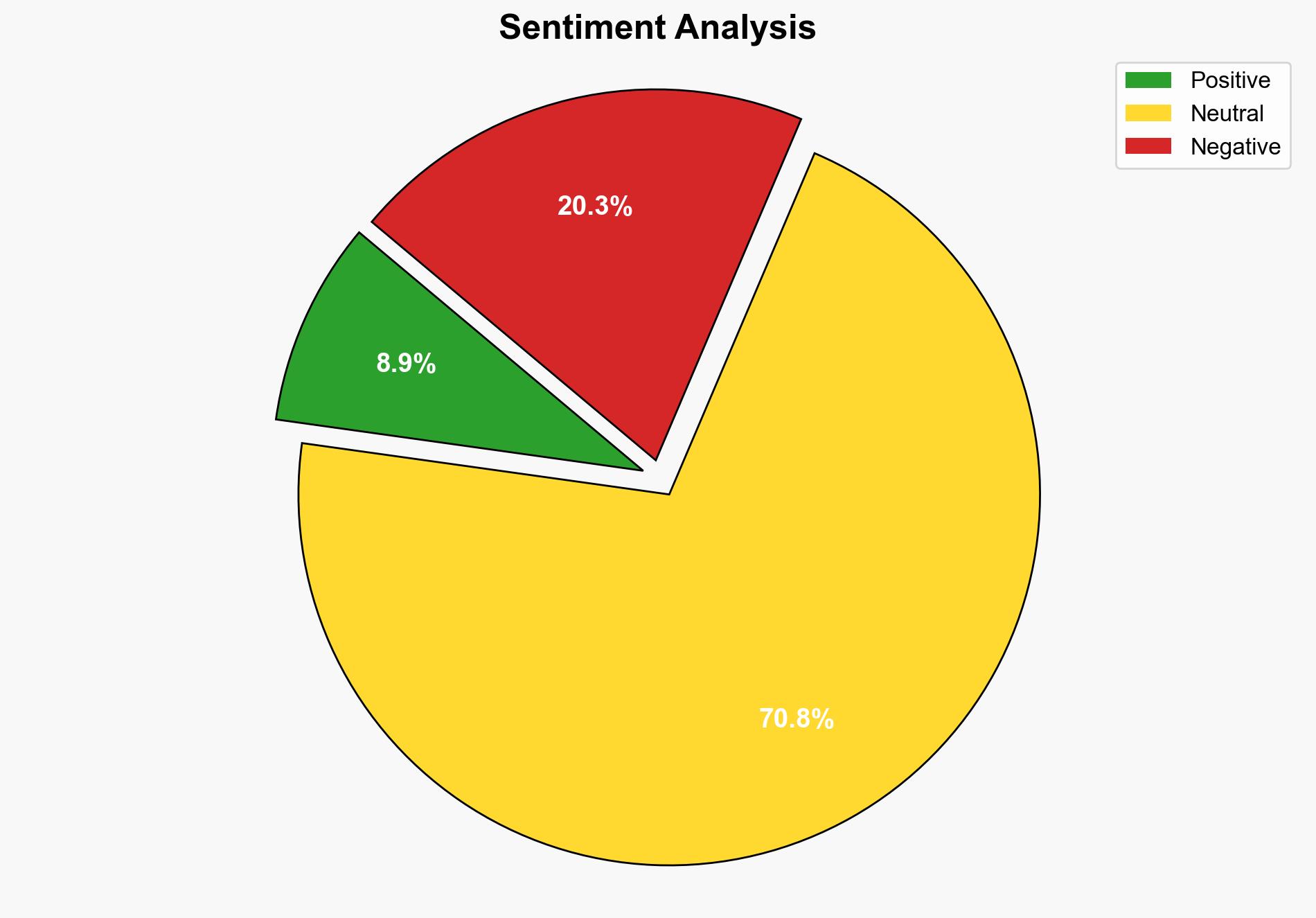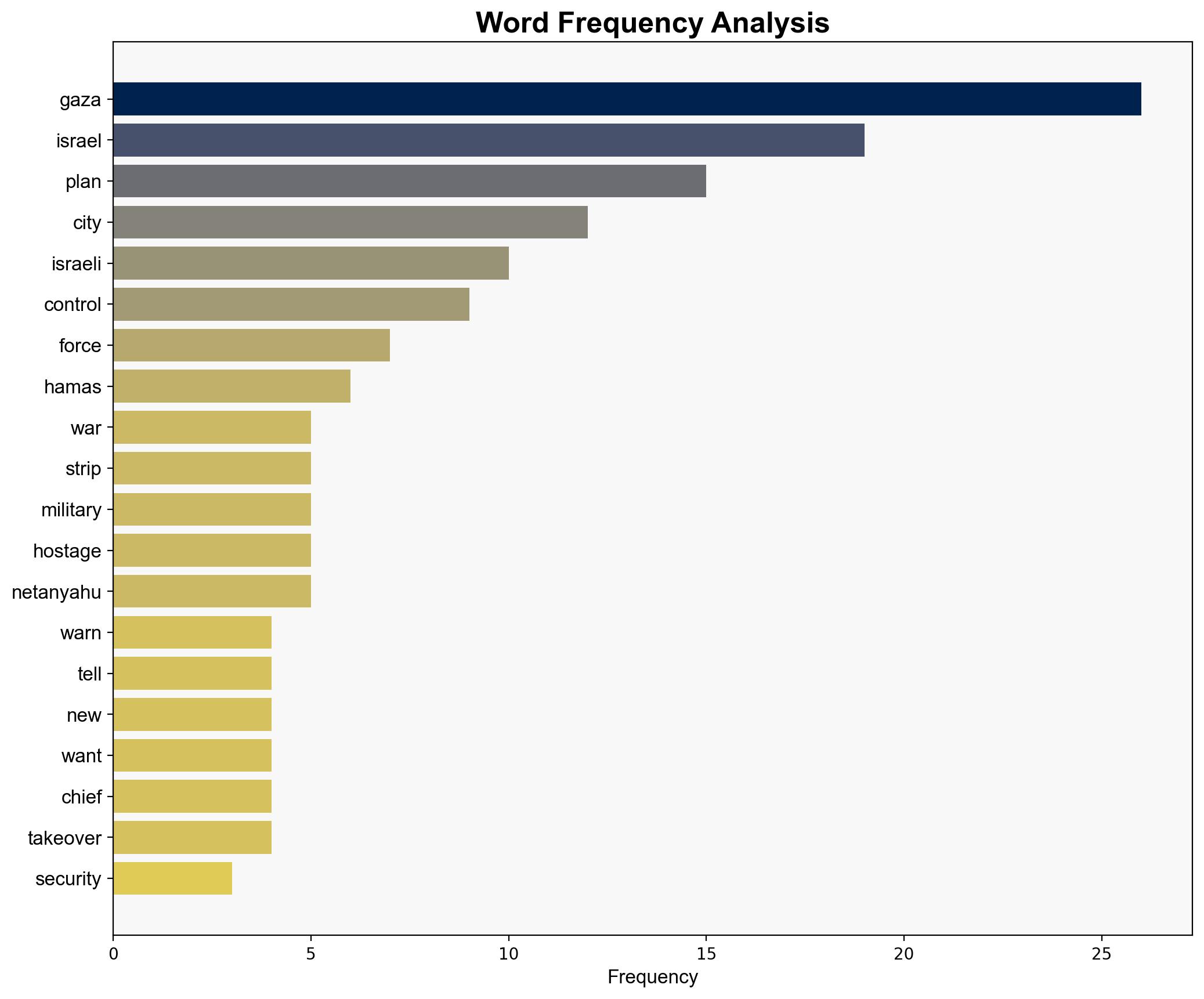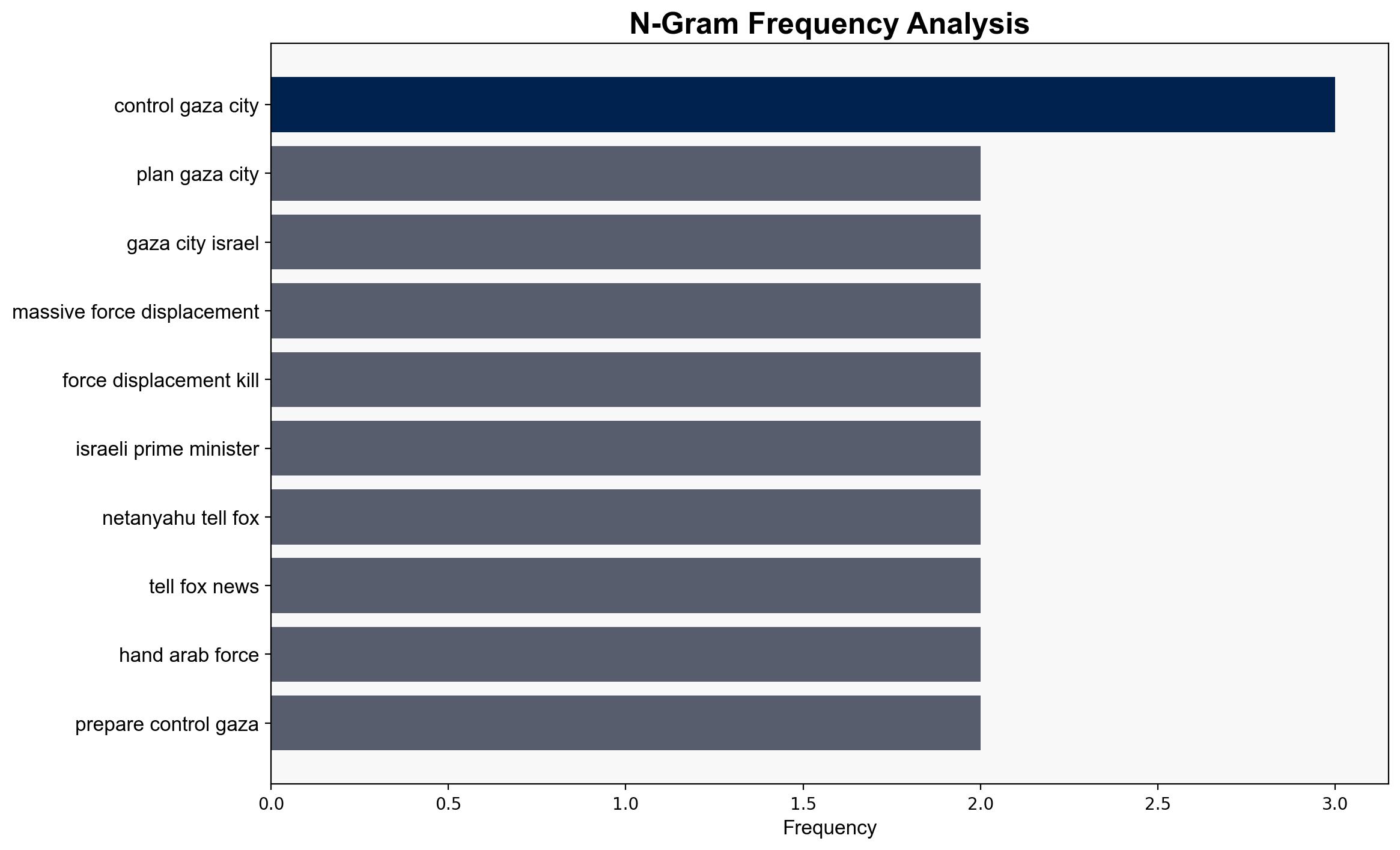What we know about Israel’s plan to take over Gaza City – BBC News
Published on: 2025-08-08
Intelligence Report: What we know about Israel’s plan to take over Gaza City – BBC News
1. BLUF (Bottom Line Up Front)
The most supported hypothesis is that Israel’s plan to take over Gaza City is primarily a strategic move to dismantle Hamas and establish a security perimeter, with the eventual goal of transferring control to an Arab force. Confidence in this hypothesis is moderate due to conflicting reports and lack of detailed plans. Recommended action includes diplomatic engagement to clarify intentions and mitigate regional tensions.
2. Competing Hypotheses
1. **Hypothesis A**: Israel intends to occupy Gaza City to dismantle Hamas, establish security control, and eventually transfer governance to an Arab force. This is supported by statements from Israeli officials and the strategic outline of disarmament and demilitarization.
2. **Hypothesis B**: The plan is a strategic pressure tactic to force Hamas into concessions during ceasefire negotiations. This is suggested by the lack of detailed plans and internal opposition within Israel, indicating possible strategic ambiguity.
Using Analysis of Competing Hypotheses (ACH), Hypothesis A is better supported by the explicit statements from Israeli leadership and the outlined military objectives. However, Hypothesis B remains plausible due to the absence of clear implementation details and reported internal dissent.
3. Key Assumptions and Red Flags
– **Assumptions**: Israel has the capability and international support to sustain a prolonged occupation. Arab forces are willing and able to assume control post-occupation.
– **Red Flags**: Lack of detailed operational plans and timelines. Reports of internal opposition and vague statements suggest potential strategic deception or miscommunication.
– **Blind Spots**: Potential reactions from regional actors and the international community are not fully considered.
4. Implications and Strategic Risks
– **Escalation Risks**: Increased military engagement could lead to broader regional conflict, drawing in neighboring countries.
– **Geopolitical Impact**: Strained relations with international allies and potential sanctions or diplomatic backlash.
– **Humanitarian Concerns**: Massive displacement and civilian casualties could exacerbate the humanitarian crisis, fueling further unrest.
– **Economic Consequences**: Prolonged conflict could destabilize regional economies and disrupt global markets.
5. Recommendations and Outlook
- Engage in diplomatic dialogue with Israeli and regional leaders to clarify intentions and seek peaceful resolutions.
- Prepare for humanitarian assistance and refugee support in anticipation of potential displacement.
- Monitor regional military movements and communications for signs of escalation.
- Scenario Projections:
- Best Case: Successful disarmament of Hamas and peaceful transition to an Arab-led administration.
- Worst Case: Full-scale regional conflict with significant civilian casualties and economic disruption.
- Most Likely: Prolonged military engagement with intermittent ceasefires and ongoing humanitarian challenges.
6. Key Individuals and Entities
– Benjamin Netanyahu
– Hamas leadership
– Israeli Defense Force (IDF)
– Arab forces (potentially Jordanian or Egyptian)
7. Thematic Tags
national security threats, counter-terrorism, regional focus, geopolitical strategy





